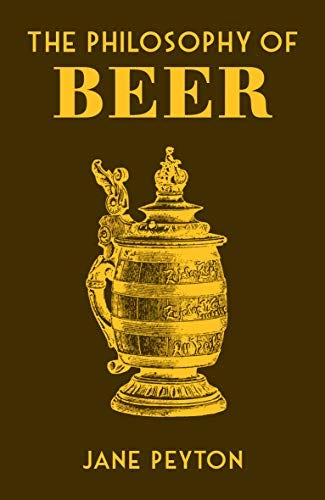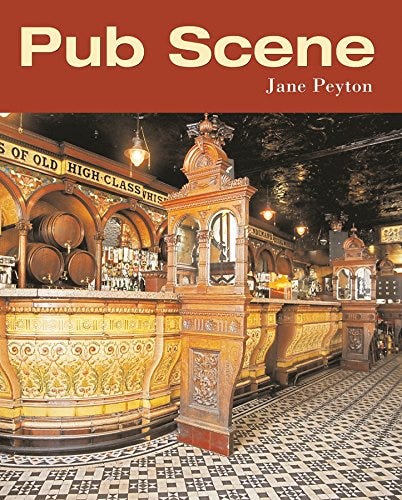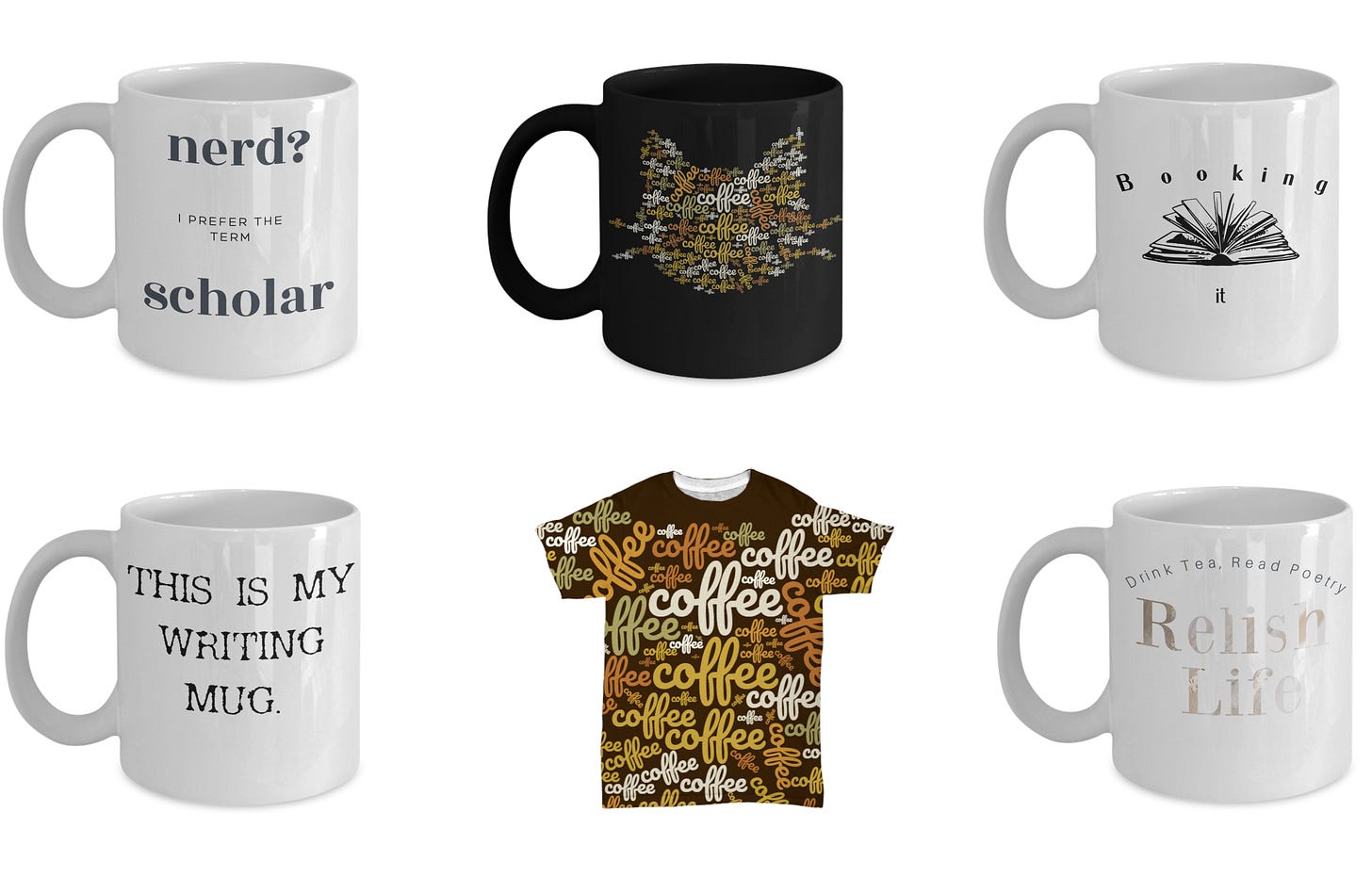Interview with B. A. Summer - 2023
Interview #22 (Contemporary Fiction, Beach Read, Curio Fiction)
B.A. Summer is the pen name used by Jane Peyton for her fiction. Peyton is the author of many non-fiction books and founder of the School of Booze (an events, education, writing, and broadcasting consultancy). Her previous published writing includes books about alcoholic drinks, architecture, design, and British traditions.
Randal Eldon Greene: Hello, B. A. Summer.
Sole Brethren: If the Shoe Fits is about a psychic named Cordelia Tanner who, when she touches an item, is able to see a person’s history. However, she almost always turns toward shoes for exercising her psychic powers. She lives in a shoe-shaped apartment, runs and designs for an exorbitantly expensive bespoke shoe company, and she is opening a shoeseum (a museum for shoes).
Cordelia’s shoe obsession leads to both some fun and glamorous happenings in your novel. I’d like to know why you decided on shoes rather than on something like dresses or full costumes (since she is an expert at period and personality costumes too) as the item of interest for your protagonist?
B. A. Summer: Several years ago I kept seeing single shoes laying in the street and it made me wonder what had happened for the owner to lose just the one. I started imagining scenarios to explain their presence and thought how useful it would be to have a psychic ability that could reveal the answers. Cordelia Tanner came into my head and because she was a shoe designer then it was natural that she would be intrigued by shoes.
In a previous career I was a producer of TV documentaries, based in Los Angeles. I once interviewed the man who had been director of the CIA’s Operation Stargate during the Cold War. It had employed people with a psychic ability called remote viewing to supply intelligence on activities/objects connected with the Soviet Union. Some of the results he told me about were mind-blowing and because by then it was a declassified programme, he could talk publicly about the successes. The remote viewers used some of the techniques that Cordelia does when she ‘reads’ shoes but I wanted Cordelia to have a unique ability that was an enhanced version of remote viewing/psychometry so she could do more with her psychic gift.
I chose shoes rather than other items of clothing for Cordelia’s obsession because there is so much to say about shoes. They send a visual message of a person’s status in life, their aspirations, often their profession (think of heavy duty work boots compared to delicate satin ballet shoes), and self-image. There is also fascinating history and symbolism associated with shoes. Not only that, but shoes mould to a person’s foot in a way that no other item of clothing does, so there is an intimate and very personal relationship that a person has with a shoe because their feet are directly in contact with the footwear. There are more idioms about shoes than for any other piece of clothing, for instance: dead man’s shoes, big shoes to fill, goody two shoes. And not least, I adore shoes and as a student worked in a luxury shoe store, then in my first job as a graduate in a fashion PR agency, two of my clients were world-renowned shoe designers.
Randal Eldon Greene: Even though Cordelia is obsessed with footwear, it’s explained that she has bad feet, so has to wear shoes more sensible than the sensational creations she is known for. Explain to our readers what her innovative solution is to this imbalance in her life.
B. A. Summer: Cordelia Tanner, the world’s leading designer of luxury bespoke shoes, has a secret. She has orthopaedic foot problems and cannot wear the exquisite shoes she designs for her clients. Fortunately she can have stylish shoes made to her own designs by her own production studio, but that still means no heels, no strappy sandals, no mules. Most people with foot problems are forced to rely on the distinctly unstylish footwear sold in specialist orthopaedic shoe shops. It was this factor, and Cordelia’s desire to wear glamourous shoes, that prompted her to conceive the idea for Footloose, a revolutionary 3D wearable holographic technology that gives the impression of a person wearing wondrous footwear, when in reality, they have on their comfy old sneakers. Footloose revolutionises footwear fashion and becomes hugely popular across the world, and not just for people with orthopaedic foot problems.
Randal Eldon Greene: Of course, her solution to a personal problem (which she hopes will help others who suffer as she does) comes with repercussions. Along with social forces she couldn’t have anticipated, her creation ends up hurting the shoe industry which she is both a part of and never intended to seriously compete with.
B. A. Summer: Cordelia had no idea that her invention would have major unintended consequences when almost everyone with a smart phone downloads the Footloose app and millions of people start wearing virtual shoes and stop buying real shoes. This leads to the collapse of shoe manufacturing and retailing. Not only that, but all associated businesses are impacted—producers of laces, shoe polish, inner soles, corn plasters, cobblers—leading to bankruptcies and unemployment. Not even Cordelia’s luxury bespoke shoe brand, House of Tanner, is immune, and she gives her staff a long paid holiday as orders dwindle. Cordelia and Rex (her twin brother and business partner) are devastated that their invention has caused such problems and led to financial ruin for so many. They scramble to coax people back into buying and wearing real shoes but in doing so they have to foil the attempts of the Foot Liberation Front, with its slogan ‘Free Your Feet’ to brainwash people to choose virtual footwear because they do not believe a person should encase their feet in shoes.
Randal Eldon Greene: There are quite a few very interesting historical sections of your book about figures from history. Most of them being women who were in some way ahead of their time, be they artists or outlaws. I find these scenes fascinating, not only because they don’t typically affect the plot in a direct way, but also in how they reflect history with some fantastical—and often hilarious—alterations. Why did you decide to include so many instances of women’s history (some of which I think is entirely fictional, to boot)?
B. A. Summer: Cordelia and Elodie—the two central female characters—are accomplished and successful because they are educated, independent, and exist in the 21st century. History is largely written by men and women who were (are) not valued, so they do not usually appear in the historical record unless they were monarchs or had some connection with a well-known man. Women were unable to be free in the way men were and they were expected to stay at home and behave themselves. They still are in some societies. I have no doubt there were countless extraordinary women who wanted fulfilling careers and to make a mark on their terms, but they were prevented by societal norms from doing so. We do not know who they were because history does not record them, so I have imagined some fascinating women and made them characters in Sole Brethren.
Charlotte Bennington, the highwayman, and Gabriella d’Este, the sculptor are fictitious, Rosalind Franklin did exist. She was a British chemist whose work was central to the understanding of the molecular structures of DNA. Her contribution was largely unrecognised, but without it the three men most associated with DNA—Crick, Watson and Wilkins—may not have been awarded the Nobel Prize for Physiology and Medicine. Cordelia wants to right that wrong and for Rosalind’s role to be better known so she has a suit made in a fabric printed with the double helix pattern, and whenever she wears it she explains its meaning ‘whether people want to hear it or not’.
Randal Eldon Greene: You mentioned Elodie, and she is one hell of a character I’m happy to have met in a book and would love to certainly meet in real life. At first I thought that Rex—Cordelia’s twin—was the second primary character until you introduced Elodie, whom befriends Cordelia after competing with her over a pair of celebrity shoes during a bidding match. They end up having a connection I’d describe as spiritual in nature. She’s not only simpatico with Cordelia, but with everyone important in Cordelia’s life.
Was Elodie initially an integral part of the novel you intended to write? And how did you go about creating such a vibrant character?
B. A. Summer: I am the author of ten non-fiction books and each had a strict word count so I’m used to writing concisely. Sole Brethren is my first fiction but I was in such a habit of writing economically that I completed the first draft in 25,000 words. To make it into a novel length, I needed a sub-plot that would weave into the main story. This was during the height of the Covid pandemic, and in the UK where I live, we had several strict lockdowns. Like so many others, I was isolated from friends and family and missing them. One day Elodie l’Archambeau came into my head, a heroic and adventurous doctor, the most charming and irresistible person who made the impossible happen. It did not take me long to realise that she was the fictitious embodiment of friends, family, social life, and travel; in other words, she was everything I was yearning for during the time of Covid!
Elodie was my favourite character to develop, and because I had not pre-plotted her storyline I was free to let it progress in a way that was influenced by her personality. I’d heard of novelists explaining how their characters sometimes decided what would happen in the story but I did not understand how that could be. Then it happened to me with Elodie. She prompted plot lines that I had not planned, not least the story’s denouement. My intention had been to end the book at a different point in the story but the reaction of Cordelia and Rex to Elodie’s return from her disappearance in the rainforest made it apparent how deeply connected the three of them were, so I added the final chapter.
And I must mention Blanche (the dog). I only realised when I had finished writing the novel that her reaction to Elodie when they first met heralded what happened in the final pages of the novel.
I’m so pleased readers are enjoying my characters. Elodie, in particular, has been a hit. It seems that we need kind, loving, charismatic, generous, amusing, charming, supportive, empathetic, humanitarians in our lives!
Randal Eldon Greene: Those same adjectives could, in various ways, be applied to Sole Brethren. If anyone asked me to describe the feel or tone of your book, I’d say it’s a novel of whimsical opulence. Would you say this is an apt assessment of the tone of Sole Brethren?
B. A. Summer: Yes, whimsical opulence is an accurate assessment. I would also add joyful, witty, upbeat, generous, and positive.
Randal Eldon Greene: The title comes from a line only a few pages into the book. Cordelia says to her employees, “Good morning, my sole brethren.” This punny greeting is made to people whom we don’t really get to see at work in the novel. Her words are directed to the employees making the House of Tanner custom shoes, but we don’t see these sole brethren—these laborers—directly. I keep wondering about the choice of naming the book after characters we don’t see?
B. A. Summer: Sole brethren refers to everyone in Cordelia’s orbit who is involved with her shoe business. That includes her twin brother Rex who is also her business partner and co-founder of House of Tanner, Celestine, her childhood guardian who is responsible for the design of Shoeseum, Sebastian, her PA who appears as a minor character, and her employees who we do not see. Cordelia and Elodie are close friends, so she also becomes a member of the sole brethren through her profession as an academic of shoe symbolism and the bequest of her shoe collection to Shoeseum.
Randal Eldon Greene: Your descriptions of food and drink are some of my favorite parts of Sole Brethren. I’m aware that you’ve actually written a number of books about alcoholic beverages. Was it that you were just unable to resist writing about food or did you simply decide to put your expertise as a gourmand and drink expert into the book for the sake of what it could add as an atmospheric element?
B. A. Summer: I’m pleased you enjoyed the food and drink elements—they were fun to write. Yes, I included food and drink because I cannot resist writing about it. My day-to-day business is running the School of Booze, which I founded in 2008 and that involves educating, hosting events, writing, and offering consulting services about alcoholic drinks and its non-alcohol equivalents. To me its such an interesting subject and there is plenty to say.
I also wanted to show that Cordelia and her friends and family had an active social life, and that they were gourmands who took great pleasure in food and drink. By including scenarios that involved food and drink, it takes the reader to different locations and the characters are able to interact in places other than at Cordelia’s place of work. It was also my intention to create a vibrant world for Cordelia to exist in and I think I managed to do that!
The Weasel is the fictitious pub co-owned by Cordelia and her ex-husband Oscar. I adore pubs and one of my first published non-fiction books was Pub Scene, a coffee table book about pub design. The Weasel is a smorgasbord of all the best elements of my favourite hostelries and to me represents what my perfect pub would be.
Randal Eldon Greene: Was your writing process for fiction very different from that of your nonfiction?
B. A. Summer: For me non-fiction and fiction writing are two different processes. Writing is like a rhythm and with non-fiction it is staccato because I stop all the time to check facts, whereas fiction is legato in that my writing is fluid and continuous.
For non-fiction I am used to writing to a strict word count, so I distill the information into as few words as possible. When I was writing Sole Brethren, I had no word count, but as I am conditioned to write concisely I had to keep reminding myself to write as many words as I wanted. Even so, the first draft was 25,000 words which is not even novella length. I needed a sub-plot and when the character Dr Elodie l’Archambeau, came into my head and enriched the story, there was no stopping me! Something else I had to learn was that facts did not matter the way they do in non-fiction and I could invent what I wanted because it was a novel. So much fun!
Randal Eldon Greene: Are you working on any new fiction now?
B. A. Summer: I had such an enjoyable experience writing Sole Brethren: If The Shoe Fits, and reviews suggest that readers really like the characters, so I am slowly writing a follow-up called Sole Brethren: Left To Their Own Devices. It is not a sequel, rather a continuation of the adventures of Cordelia, Rex, and Elodie with some other returning characters. Sole Brethren: Left To Their Own Devices will contain plenty of jollity, beauty, and culture, plus lots of activity at The Weasel Pleasure Gardens.
I'm not sure if I got the narrative the way I intended, either in the stories or the novel, but I did try my very best to write the story that I was interested in telling.
Purchase Soul Brethren online.
Find the author’s nonfiction here.
© 2023
About the interviewer:
Randal Eldon Greene is the author of Descriptions of Heaven, a novella about a linguist, a lake monster, and the looming shadow of death.
His Instagram is @RandalEldon Greene
His website is AuthorGreene.com
You can also support our work by buying cool merch like mugs and t-shirts.









